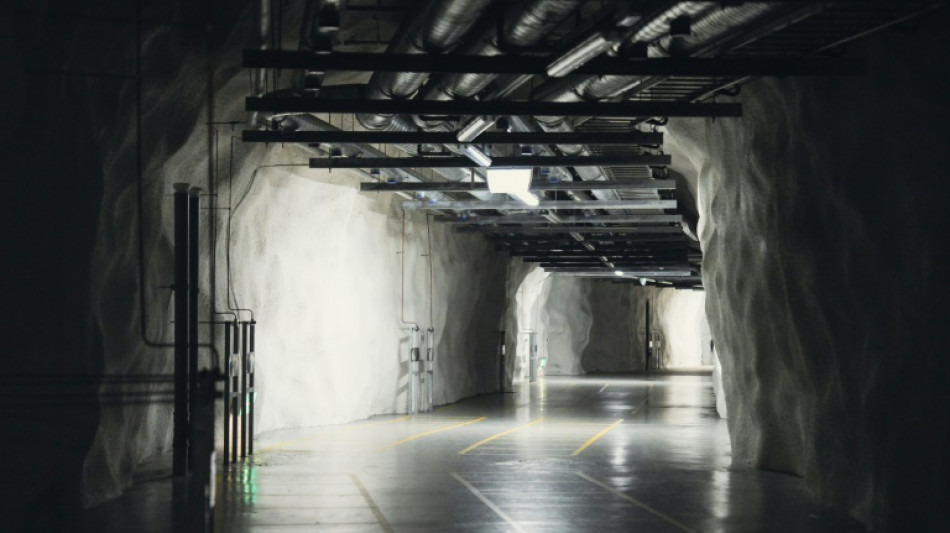
-
 Cash-strapped Nigerians turn to YouTube for entertainment
Cash-strapped Nigerians turn to YouTube for entertainment
-
Two dead as fans, police clash before Copa Libertadores game in Chile
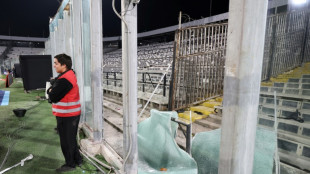
-
 Flowers in their hair: Shan boys ordained into Buddhist monkhood
Flowers in their hair: Shan boys ordained into Buddhist monkhood
-
Edwards leads Wolves past Grizzlies as playoff race heats up

-
 Ancelotti questioned as Real Madrid face Alaves
Ancelotti questioned as Real Madrid face Alaves
-
Old foes Bayern and Dortmund face off amid spectre of European exit

-
 Early holiday, more fans: Philippines schools adapt to climate change
Early holiday, more fans: Philippines schools adapt to climate change
-
In skies, as on land, European forces face gaps if US pulls back
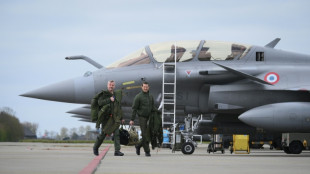
-
 Digital divas: Can Japan's virtual YouTuber craze crack America?
Digital divas: Can Japan's virtual YouTuber craze crack America?
-
WHO pandemic agreement talks face deadline crunch

-
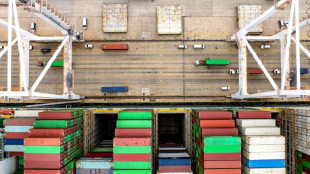 Stocks, dollar sink and gold hits record as Trump tariff panic returns
Stocks, dollar sink and gold hits record as Trump tariff panic returns
-
LeMond hails 'one in a million' Pogacar ahead of Paris-Roubaix debut

-
 Liverpool can move closer to the title as top five tension mounts
Liverpool can move closer to the title as top five tension mounts
-
Trump admits trade war 'cost' as markets hit

-
 AI only just beginning to revolutionize the NBA game
AI only just beginning to revolutionize the NBA game
-
Despite Trump pause, overall US tariff rate at highest in a century

-
 'A pain that doesn't subside' at funerals for Dominican nightclub disaster victims
'A pain that doesn't subside' at funerals for Dominican nightclub disaster victims
-
Panama deal allows US to deploy troops to canal
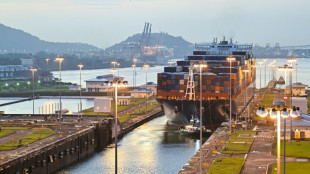
-
 US firm says it brought back extinct dire wolves
US firm says it brought back extinct dire wolves
-
Grieving Dominicans start burying 220 victims of nightclub disaster
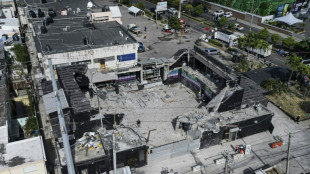
-
 Aberg closes strong at 'sneaky hard' Augusta National
Aberg closes strong at 'sneaky hard' Augusta National
-
US auto union praises some Trump tariffs

-
 Australian IVF clinic admits embryo mix-up
Australian IVF clinic admits embryo mix-up
-
Rose: I've played well enough to win Masters but lack the jacket
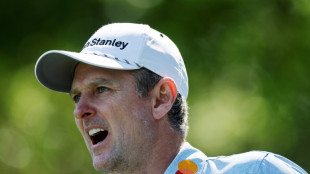
-
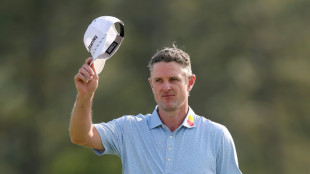 Rose again enjoys 'luxury' of first-round Masters lead
Rose again enjoys 'luxury' of first-round Masters lead
-
Rose rockets to Masters lead, defending champ Scheffler in pursuit

-
 Tesla opens first showroom in oil-rich Saudi
Tesla opens first showroom in oil-rich Saudi
-
Oscars to add new award for stunts

-
 Hatton loves being at Masters but 'It's just so hard'
Hatton loves being at Masters but 'It's just so hard'
-
'Mistakes can happen': Amorim backs Onana after Lyon nightmare

-
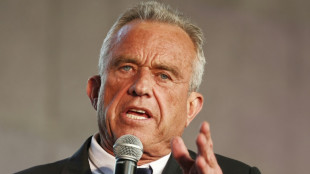 RFK Jr says study will reveal cause of autism 'epidemic'
RFK Jr says study will reveal cause of autism 'epidemic'
-
Tourist family, pilot killed in 'tragic' NY helicopter crash
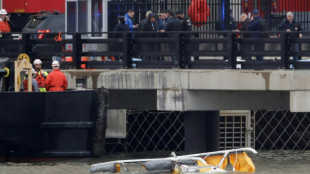
-
 No.1 Scheffler makes strong Masters start to defend title
No.1 Scheffler makes strong Masters start to defend title
-
Man Utd and Spurs draw in Europa League, Rangers hold Athletic

-
 Rose rockets to Masters lead with Scheffler and McIlroy in pursuit
Rose rockets to Masters lead with Scheffler and McIlroy in pursuit
-
Man Utd held late in Lyon after Onana errors in Europa League

-
 Man Utd held late in Lyon after Onana errors
Man Utd held late in Lyon after Onana errors
-
Wall Street rally fizzles as tariff fears resurface

-
 MLS to open 'second phase' of major season overhaul study
MLS to open 'second phase' of major season overhaul study
-
Argentina braves 24-hour strike as it awaits word on IMF loan

-
 Spain's Ballester finds relief in Masters water hazard
Spain's Ballester finds relief in Masters water hazard
-
Porro rescues Postecoglou as Spurs held by Frankfurt

-
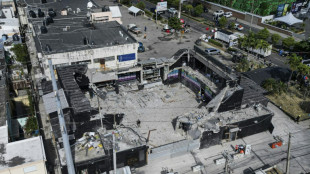 Grieving Dominicans start burying 200+ victims of nightclub disaster
Grieving Dominicans start burying 200+ victims of nightclub disaster
-
CONMEBOL proposes one-off 64-team World Cup in 2030

-
 Rybakina on form for Kazakhstan in BJK Cup
Rybakina on form for Kazakhstan in BJK Cup
-
Former Real Madrid coach Leo Beenhakker dies aged 82

-
 Rose rockets to top of Masters leaderboard, Scheffler one back
Rose rockets to top of Masters leaderboard, Scheffler one back
-
Langer fades after fiery start in Masters farewell

-
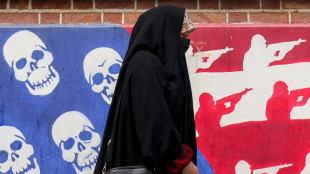 Iran, US raise stakes ahead of key talks in Oman
Iran, US raise stakes ahead of key talks in Oman
-
US-China confrontation overshadows Trump's 'beautiful' trade war


Finland's colossal bomb shelters a model for jittery Europe
Swimming pools, playgrounds and amusement parks: Finland's underground facilities, which can double as bomb shelters, have emerged as an inspiring approach as Europe ramps up preparedness after Russia's invasion of Ukraine.
Finland shares a 1,340-kilometre (830-mile) border with Russia. Its network of civil defence shelters is an integral part of its preparedness strategy, which harks back to just before World War II.
Blasted into Helsinki's granodiorite bedrock dozens of metres underground, people of all ages swim and splash in the pools or relax in saunas in the cavernous Itakeskus swimming hall.
The complex is one of Finland's 50,500 civil defence shelters which have space for around 4.8 million of its 5.6 million population.
Intended to accommodate up to 3,800 people, the pools can be emptied of water and turned into a bombproof shelter within 72 hours.
"This is the world's biggest civil defence shelter facilitating a swimming hall," Teemu Raatikainen, who has been the head of maintenance for almost 30 years, proudly explained as he gave AFP a tour.
Finland's security strategy based on long-term investments in both the military and preparedness -- including civil defence shelters -- has attracted international interest after Russia's invasion of Ukraine in 2022 and the deteriorated security situation across Europe.
"We always have this multi-use -- peacetime use and wartime use -- of our shelters," Jarkko Hayrinen, a senior rescue officer at Finland's interior ministry explained, as he showed AFP another one of Helsinki's large bomb shelters.
- Blast-proof tunnels -
With space for 6,000 people, the Merihaka shelter in central Helsinki houses an underground playground, several ball courts and a gym.
"The shelters are very well maintained because people are using them in normal times," Hayrinen said.
The Finnish "cultural mindset" of involving all sectors of society in security has become something of a "trademark" for Finland after it joined the NATO military alliance in 2023, said Matti Pesu, a senior researcher at the Finnish Institute of International Affairs.
"And the civil defence shelters are a real tangible symbol of how the authorities are preparing to protect citizens in emergency situations," he added.
High-level guests such as Ukrainian President Volodymyr Zelensky and Denmark's King Frederik X and Queen Mary have recently been given guided tours through the zigzagging blast-proof tunnels of the Merihaka shelter.
- Long tradition -
"The first act on building defence shelters was adopted already in 1939, two weeks before the Winter War started," Hayrinen said, referring to the Soviet Union's invasion of Finland which lasted more than a 100 days.
"Finland was not prepared for defending civilians during wartime and it was a hard lesson for us," he added.
The Nordic country now has bomb shelters to protect almost all its citizens, with Helsinki providing space for 900,000 persons -- enough to host all the capital's residents and thousands more.
Designed to withstand explosions, building collapses, radiation and toxic substances, the largest public shelters in Finland have primarily been situated in populated areas.
Buildings or housing complexes with a floor area exceeding 1,200 square metres are required by law to have a bomb shelter.
Other countries with a similar wide access to bunkers are Switzerland, Sweden, Norway and Israel.
"All of these countries are united by a tradition of neutrality or a strategically difficult position," Pesu noted.
Finland, where military service is mandatory for all men and voluntary for women, can quickly mobilise some 280,000 soldiers and the total military reserve comprises some 900,000 people.
On April 1, the country announced it will increase national defence spending to at least three percent of GDP by 2029 in response to the security threat posed by Russia.
T.Egger--VB


